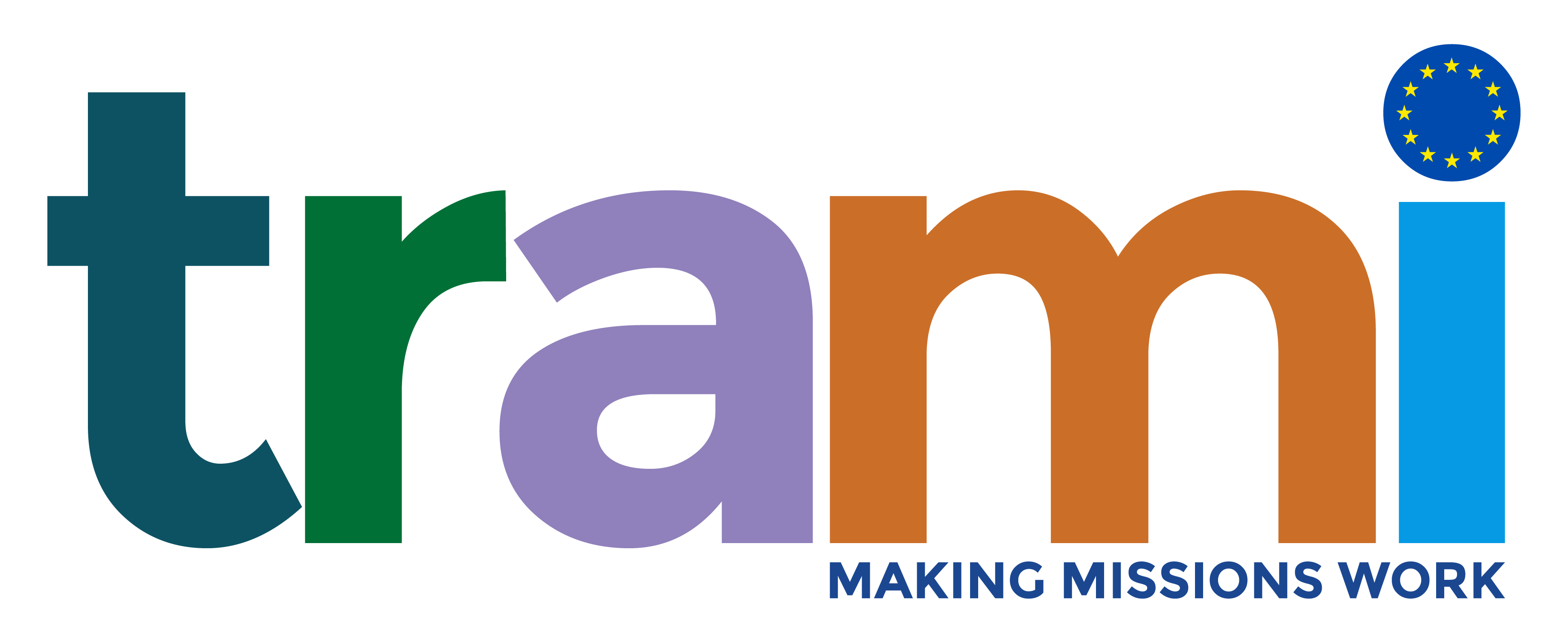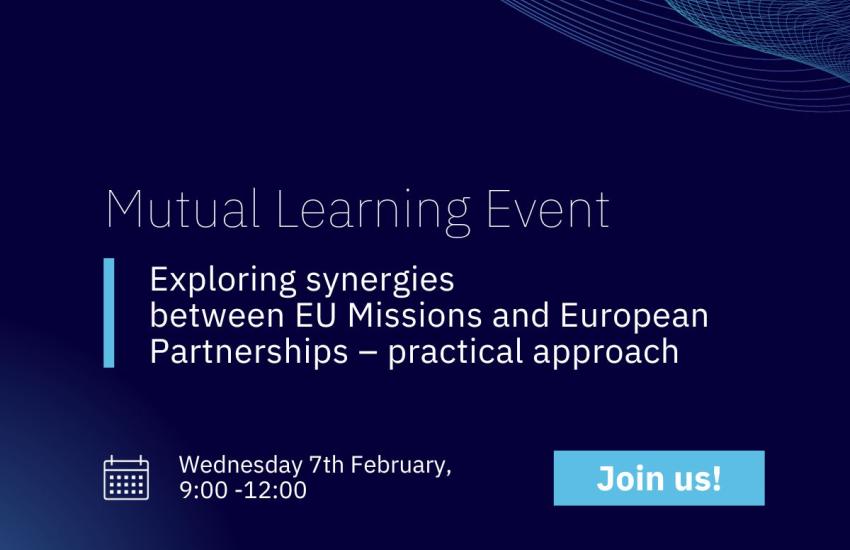Report on the 8th MLE
How to implement EU Missions approach?
ORGANISERS: TRAMI (WP3)
VENUE: Marriott Warsaw Hotel; Al. Jerozolimskie 65/79, Warsaw, Poland
DATE: 22 November 2023
Introduction
MLE on How to implement EU Missions approach was organized in the framework of the “EEA & Norway Grants contributions to EU Missions on Adaptation to climate change including societal transformation and Climate-neutral and smart cities” Conference. Back2back MLE with an important event has provided a great visibility for TRAMI project.
Objectives of event
The objective of the MLE was to present different forms of the implementation the missions approach, from the most advanced case – Austria, to more local focus (living labs) within the EU Soil Mission of Region of Extremadura (Spain). Followed by a collaborative exchange that gave a unique opportunity for participants to engage in a practical and shared learning experience.
Attendees
The event gathered approx. 78 attendees, including the beneficiaries of the Norway Grands, public authorities, representatives of academic organisation and university, industry and research institutes.
Methodology
An overview of the TRAMI project and MLE introduction, and its objectives was provided by Karolina Dutkiewicz-Garcia from National Centre for Research and Development Poland and Grainne Ryan from Enterprise Ireland.
Following the overview presentations, Pirita Lindholm, ERRIN introduced topic setting the scene for the other presenters:
- Wolfgang Polt, Joanneum Research, Austria
- Tor Ivar Eikaas, Research Council of Norway
- Irene Palomino, FUNDECYT-PCTEX in Brussels, Spain
- Bogdan Chelariu, North-East Romania Regional Development Agency, Romania
Following the presentations, the participants were selectively divided into 7 breakout groups to address a number of key questions. The participants in the groups were preselected to endeavour to ensure a balance between all stakeholders. Please find below a combined summary of the outputs of the groups.
What are the challenges in implementing EU missions?
The knowledge about the EU Missions still tends to be rather general and the relation between the EU Missions and HE calls is not clear. Therefore a broader clarification and further communication, adequate to the public would be welcome, as well as sharing of good practices. There is a need to communicate and spread the word about missions, in a way that people understand and become interested in them. People are hesitant as there is a lot of uncertainty around how to become involved. There are target group e.g., citizens who are not involved in R&I but should be involved in the missions.
There is a need of a wider and more holistic approach, which requires involvement of many different actors, like citizens, private sector, researchers.
o Citizens participation has been enumerated as one of the most critical elements related to the appropriate implementation of the EU Missions. On one hand we need to empower the citizens and potential community leaders, by providing capacity building and educational activities. On the other, we should create the spirit of ownership and focus on potential solutions that can be implemented (e.g. localities can provide a practical test bed for the research).
o Both business and research seem to be absent in the EU Missions. There is lack of incentives and clear benefits for those sectors, not mentioning administrative burdens (as well as lack of HR) related to European projects and initiatives.
There should be a right balance between policy actions, education and investments – on all levels European, national, regional and local.
Funding vs local/regional development strategies. The funding opportunities in the HE for the implementation of the EU Missions do not necessary align with the development strategies and specific actions foreseen, hence it’s difficult to finance “additional” actions. Also, there must be advantages for the town e.g., the town is seen as being innovative (EU Mission label might not be enough to join the “missions community”).
There is no one, universal “Missions Approach”, as there are local interests and also local challenges, e.g. legislative placed based issues, and need for longer time frame e.g. living labs.
Missions are complex and seen as “Brussels” driven, therefore there is a question of how to motivate people, especially if they are facing their daily problems (inflation, higher energy and food costs etc.). If the missions approach is supposed to work, we need be aware of what is important to people, what can be mutual benefits and what can have value for people.
Lack of political engagement can result in less interest in the European Affairs and EU Missions. On local level the priorities are set according to the political agenda or/and local needs, and despite the fact that many times they “match” the European/ green deal agenda – they are not perceived this way.
What are the opportunities and benefits?
The EU Missions will provide a better quality of life and without a doubt, they support the development of science and they inspire the research.
The missions can involve multiple actors, from different target groups and can benefit from a wider approach. This is an advantage to many more stakeholders.
Possibility to implement new tools e.g. living labs, lighthouses - all provide extra knowledge and benefits.
The EU Missions provide new and updated data and knowledge.
Testing and data collection; missions provide the opportunity and ability to test in real life scenarios.
They can create new solutions for problems and they connect technology with society.
Mission can provide leverage to change legislation at national /regional level. Legislation e.g., some countries do not allow the creation of more energy than they use, even at building level, can be an issue for climate neutral missions. Real life is in front of legislation.
Better connections between environment and economical aspects.
Exchange of best practices on different levels: national, regional and local.
New ways of public management and multi-stakeholders governance.
The EU Missions provide new and updated data and knowledge.
Missions are a driver for a change of mentality and for breaking silos, making everyone focus on the challenge to tackle.
What kind of support is needed for an effective implementation of the EU Missions.
There is too much information in different places. It is a valuable information but hard to access – people do not know where you start. There should be “one stop shop” for all the missions, one platform where all the information should be available and interconnected. There is also a need of “facilitators” able to interpret the information and “translate” it in reference to the local situations.
Need to have a toolbox, so you can look at regions’ problems, and see the data and the impacts. If you know the problems, other areas may have the solutions, kind of: “Google for problems”.
Horizontal instruments supporting missions implementation.
Investment in leaders (people), that can communicate and animate particular mission focused actions.
Simpler language, better communicators.
More co-creation on the policy level. Could be useful to develop a new way of implementation at administration level, starting with the consultation process, through programming and implementation.
Long-term national/ regional strategies that are aligned with the EU Missions calls and policies.
More training for NCPs, it is challenging for them to have an overview for NCPs, they need to help applicants.
There needs to be more support for project administration. Researchers are spending far too much time on project management, while they focus on the research. On one hand, there is a need for the administration experts and on the other, for a balance between trust and transparency. Not to mention that sometimes there are different rules in different countries e.g., procurement requirement levels.
Greater flexibility in project, an option to change direction, add new actions if deem necessary.
Citizen and SME engagement have a capacity issue due to the work involved. There might be a need of smaller grants to support citizens and business at local level to become involved.
- Log in to post comments

